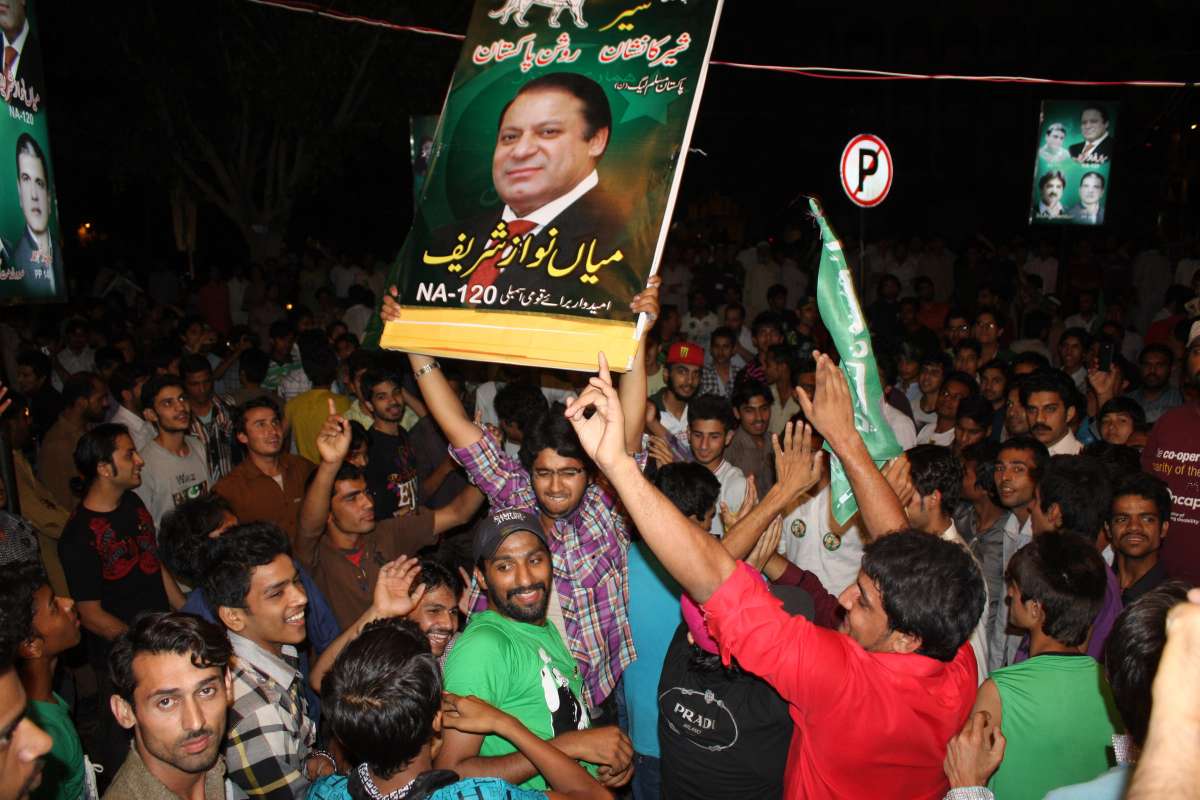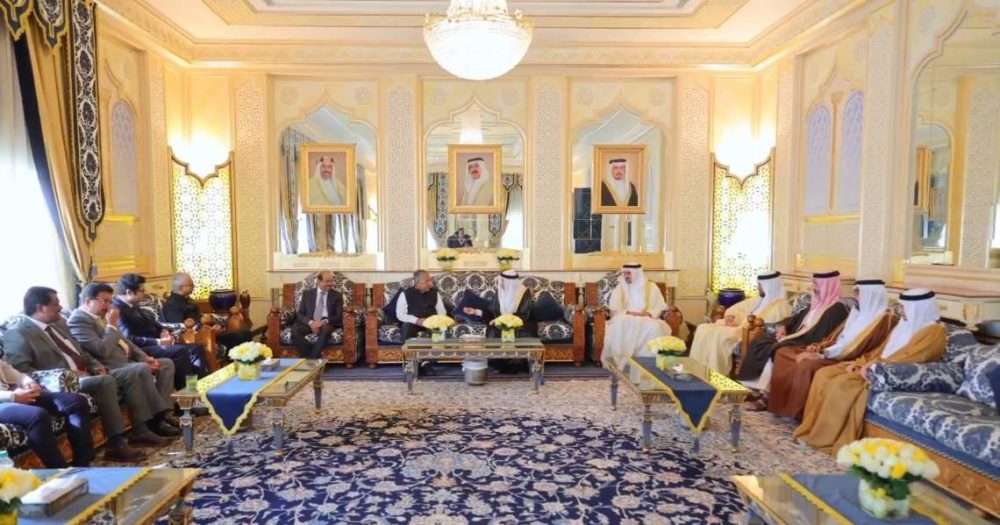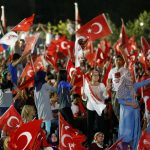Pakistan is preparing to welcome self-exiled former prime minister Nawaz Sharif on October 21. The PML-N supremo does not seem in any mood to abandon his long-standing demand for the ‘strict accountability’ of general and judges for their alleged involvement in a ‘conspiracy’ to oust him from power in 2017. The Pakistan army has ruled the state directly for 33 years and exercised influence from behind the scenes during the remaining period. It has shown resilience in recovering from periodic setbacks, including its crushing defeat in 1971, using strong-arm tactics and intimidation to enforce its will. ‘The very institution created to protect the polity is given sufficient power to become a threat to the polity.’ A special report by Dr Sakariya Kareem
In Pakistan, it is not history that repeats itself but the military establishment that repeats history. Historically, one of the key reasons why the military is politically involved in Pakistan is colonialism. After partition in 1947, the Muslim League, which spearheaded the Pakistan movement, was too weak. There was a large vacuum for the military to take politics into its own hands. Hence the military has been involved in Pakistani politics since 1948.
The Pakistan army has ruled the state directly for 33 years and exercised influence from behind the scenes during the remaining period. It has shown resilience in recovering from periodic setbacks, including its crushing defeat in 1971, using strong-arm tactics and intimidation to enforce its will. The continual infringement of the Constitution has left a watermark of what should have been a robust democratic culture. Recurrent military regimes arrested the political process and have polluted political outfits that now, more often than not, collude with unelected elements to wrest power.
The Pakistan military, as an institution, remains materially and economically strong and capable of exerting the kind of influence despite the criticism from both political and civilian institutions, civil society, academia and the media. The military as an institution remains strong and the core reason for this is its material wealth. And the fact that there is no challenge. One of the key reasons why there have been coup like in 1999 or before or after that, is that some civilian actors tried to control power and that is what brought them into conflict with the military establishment, which resists these efforts by all means.
For example, Nawaz Sharif, the three-time PM of Pakistan and the military establishment became rivals in the 1990s. The key reason was that the Nawaz Sharif government tried to impose taxes on the military’s industries and economic wealth. This created a wedge between Nawaz Sharif and the military establishment and resultantly Nawaz Sharif’s government was overthrown by the same military establishment because of their growing differences.
A UNDP report of 2021 said that Pakistan’s various business elites, that include the military itself, received about USD 17.4 billion in subsidies and taxes concessions and exemptions from the state of Pakistan annually.
There was a period in Pakistan’s history where the opposition alliances had pitched a united front even against military dictators as witnessed against Field Marshal Ayub Khan in the late 1960s. However, what has become increasingly apparent in Pakistan’s political scenario is the waning influence of the classical civil society to forge an opposition as against Ayub Khan.
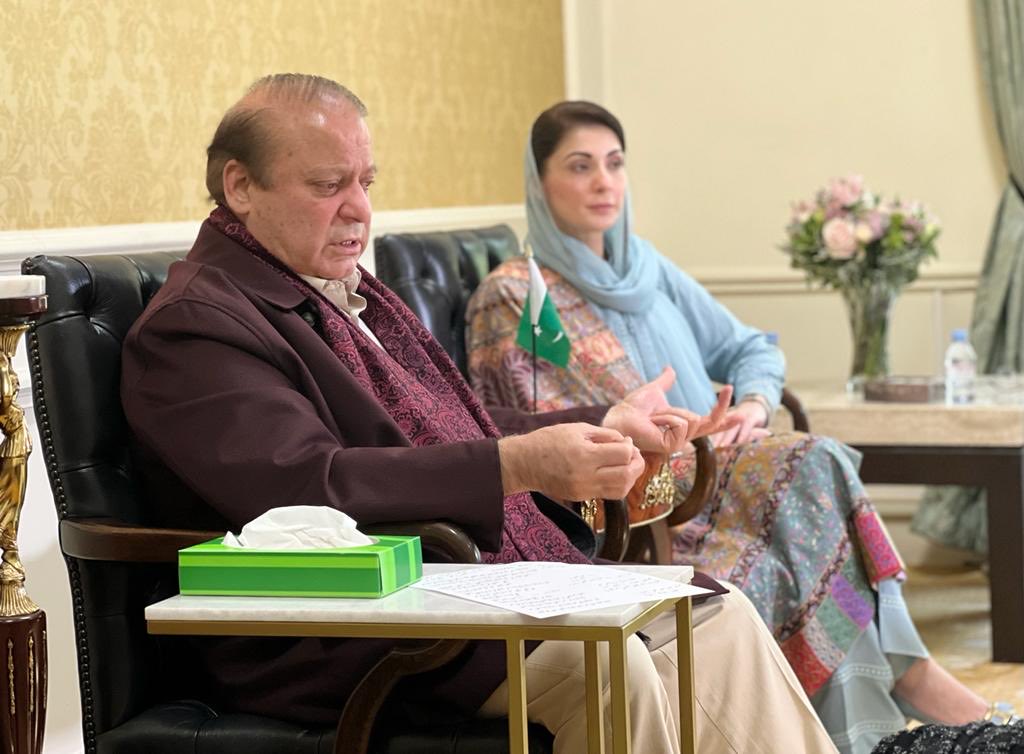
Rise and Fall of Imran Khan
For many years, the military establishment propped up Imran Khan as a fresh face in politics. For them, a ‘corruption-free,’ honest and popular political leadership was necessary as an alternative for the two main parties taking turns in power. Instead of direct military rule, a ‘hybrid regime’ was in the making for over two decades, which was accelerated by various political events, and materialised in 2018. A political demagogue, Khan promised to build a new Pakistan through reform, better governance, and eliminating corruption. This last pledge resonated with the urban middle class, particularly among bureaucratic and military families.
During his tenure, Khan outsourced the political management of both his allies and adversaries to the military establishment, undermining the structure of his party. Hiding behind this veneer, the state used the pretext of ‘hybrid warfare’ and ‘fifth generation warfare’ to crush all criticism of them. There was complete media censorship. Suppression and abductions were commonplace.
Khan counts some landmark achievements during his almost four-year rule. He introduced the Naya Pakistan Qaumi Sehat Card scheme, which provided Pakistani families with up to one million rupees (around $5400) in annual health care coverage. He successfully navigated the 2019 border crisis with India, which brought the rivals to the brink of war. During Khan’s tenure, Pakistan also proposed a resolution against Islamophobia at the United Nations General Assembly, which was adopted in March.
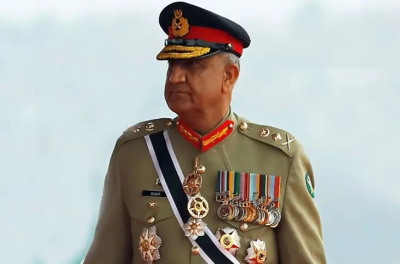
But Imran Khan’s greatest strength – the military’s seemingly unconditional support – became his Achille’s heel. As Pakistan’s economy tanked and its internal security worsened, Khan became a liability for the military. His reluctance to appoint Lt Gen Nadeem Anjum as the new intelligence director and transfer out then-sitting director and Khan loyalist Lt Gen Faiz Hameed was the final straw. Khan had hoped to keep Hameed on as spy chief and promote him to army chief at the end of Gen. Qamar Javed Bajwa’s tenure; this position crossed a red line for the military.
But Khan’s showdown with Gen Bajwa proved costly. The military soon stepped back from supporting Khan, paving the way for the opposition’s no-confidence motion. The military ruled Pakistan for three decades and has managed ‘chosen’ administrations. A recent glimpse of that was the hybrid model of the PTI-led government, which failed resoundingly, as have similar experiments.
The current military regime under Gen Syed Asim Munir is leaving no stone unturned in ensuring Imran Khan’s removal from Pakistan’s political scene.
The political crackdown on former Pakistan Prime Minister Imran Khan by the establishments holds no surprise as the country’s democratic backsliding goes beyond that. Imran Khan’s arrest on corruption charges triggered widespread protests across the country on May 9. The Pakistani Army swiftly labelled May 9 as a ‘Black Day,’ emphasizing that Pakistan Tehrik-e-Insaaf’s ‘lust for power’ achieved what its enemy had failed to do in 75 years.
Pakistan witnessed a disturbing trend of stifling dissent and suppressing voices critical of the government. The abduction of senior journalist Sami Ibrahim, the murder of journalist Arshad Sharif, the disappearance of Imran Riaz Khan, and the attempted assassination and arrest of popular leader Imran Khan served as chilling reminders of the growing dangers faced by those who dare to speak out against the ruling powers. These incidents not only raise concerns about the state of press freedom and human rights but also shed light on the tactics employed by those in power to silence opposition.
The biggest achievement of Imran Khan has been to call out the military for its machinations in Pakistan politics and infuse the spirit of ‘true democracy’ in the masses. A recent survey conducted by a political party placed Imran Khan’s popularity at 60%.
Sayed Zulfiqar Bukhari, a close aide of Imran Khan said: ‘How can you classify something as a transparent democracy when you are dismantling the largest national level party… and the most popular leader in the country is in prison? For Pakistan to become a free and democratic country, what needs to happen is free and fair elections. The people have to pick their leaders and the government that comes in has to have the mandate of the masses.
The continuous erosion of democracy in Pakistan has largely been due to the machinations of the military, its political leaders and the gullible public. However, the Western powers, who are the champions of democracy and freedom, also share some blame. Pakistan has been bailed out repeatedly from various perils be it economy or terrorism, by the same Western powers. A large Pakistan diaspora exists in Western countries, be it the US, the UK or other countries which repeatedly calls out for a functional democracy in their home country. In spite of all these factors, the Western powers failed to assist Pakistan in achieving the desired democracy as envisioned by its creators. Pakistan’s military played into the sentiments of radicalisation, internal and external threats, the Afghanistan card and various other factors to its own advantage thereby completely hoodwinking the West.
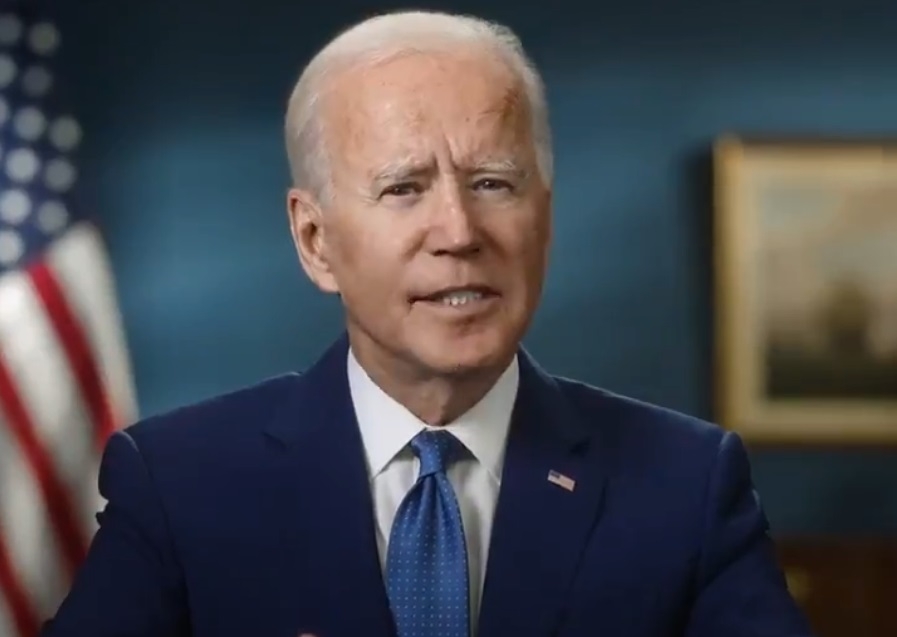
Biden’s Strategy
Is there anything the Biden administration can do to help alleviate the situation in the short term?
The Biden administration can stand in favour of democracy in Pakistan, the rule of law, and the supremacy of its constitution, all of which are under threat in this current crisis – and not with the United States’ usual and favoured partner in Pakistan, its military. This means the US should explicitly speak up in favour of free, fair and on-time elections in Pakistan this year, and against violations of the rule of law and the country’s constitution.
Throughout much of this history, Pakistan has been led by military dictators. In return for helping the United States and the West pursue its objectives, the Pakistan military obtained sizable economic and military aid and political support. However, the degree of Pakistan’s cooperation has been much less than claimed.
The Pakistani priorities reflect the specific institutional interests of the military and therefore cannot be fundamentally changed unless the army gradually cedes its political role to representative civilian leaders and limits itself to defending borders.In other words,the United States and other international actors vital to Pakistan’s future must stop taking the metaphorical bribe of partial Pakistani cooperation in fighting radicalisation, terrorism etc in return for propping up an unrepresentative, military government.
Conditionality of cooperation assistance applied by a large number of countries, not simply by the United States, should be applied to Pakistan’s leadership, in particular the military leadership, and should not affect the general population.
The first step towards this would be for the West to ensure that Pakistan’s old political guard under Nawaz Sharif as well as the publicly popular Imran Khan, be strengthened to pursue a legal course against their own corrupt Army Generals, who have involved themselves in political machinations and are responsible for the country’s plight.
Nawaz Returns
Nawaz Sharif is also due to return to Pakistan on October 21. With days left before his arrival, the PML-N supremo does not seem in any mood to abandon his long-standing demand for the ‘strict accountability’ of general and judges – former army chief Qamar Javed Bajwa, ex-spymaster Faiz Hamid, and former chief justice Asif Khosa and Saqib Nisar – for their alleged involvement in a ‘conspiracy’ to oust him from power in 2017.
The international community has all the right to be concerned. Pakistan is a nuclear nation veering from its pluralistic, democratic course, its ethnic divisions, religious and political polarisation and deepening under the jackboot of shaky military rule, posing a threat to its neighbourhood as well as the capitals of its distance western allies whose hand-wringing and threat of sanctions has fooled no one, least of all Islamabad’s current powerbrokers.
The West will be told any formulation that sees the military take the back seat in the political process has the potential for a prolonged civil war, if the current unrest, brutally suppressed by the authorities, turns into a full-blown rebellion under self-serving politicians. After another failed attempt at political engineering, the military establishment must step back and allow the democratic process to evolve.
The political churning set off by the confrontational course adopted by the military against civil society will throw up forces that could sweep even the semblances of democracy that exist in Pakistan out of the window. The US must be willing to take a chance that after the initial upheaval, Pakistan will find its democratic feet. Politicians must be allowed to have a say in a new caretaker administration and arrive at a representative, if untidy democracy.
Pakistan has long paid the price for the West’s myopic dependence on the military as the solution to all ills. This time, the West must have the courage to allow Pakistanis to winnow the democratic chaff from the military weed. Pakistan needs a new social contract that addresses injustice and inequalities.
The starting point of this might well be instituting Constitutional amendments to bring the powerful Inter-Services Intelligence (ISI) under civil leadership as is done in all democracies of the world.


